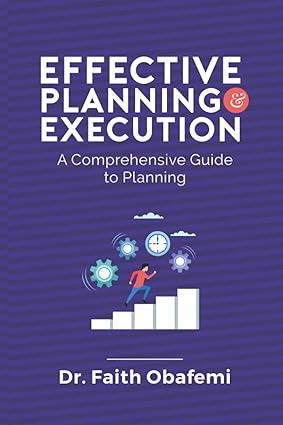Mindfulness in Daily Life: Techniques for Stress Reduction
Living in today’s fast-paced world often leaves us feeling overwhelmed, stressed, and disconnected from ourselves and our surroundings. Fortunately, mindfulness offers a simple yet powerful solution to managing stress and promoting mental well-being.
Mindfulness is the basic human ability to be fully present, aware of where we are and what we’re doing, and not overly reactive or overwhelmed by what’s going on around us. The goal of mindfulness is to awaken to the inner workings of our mental, emotional, and physical processes.
Let’s explore practical techniques for incorporating mindfulness into daily life and reducing stress levels.
1. Establishing a regular meditation practice:
Meditation forms the foundation of mindfulness. Set aside a dedicated time every day to sit quietly and focus on your breath. Beginners can start with short sessions lasting five minutes and gradually increase duration as comfort permits. Numerous free meditation apps are available to assist beginners in establishing a consistent routine.
2. Practicing deep breathing exercises:
Deep breathing is a quick and easy technique to reduce stress and anxiety whenever needed. Find a quiet space, close your eyes, and slowly breathe in through your nose while filling your lungs completely. Hold the breath briefly before exhaling gently through your mouth. Repeat this cycle for three to five minutes, focusing solely on your breath.
3. Implementing mindful eating:
Eating mindfully involves paying full attention to the taste, texture, and aroma of food while avoiding distractions such as TV, phone, or computer screens. Sit down at a table, chew slowly, savor each bite, and appreciate the sensory experience of consuming nutritious meals. Mindful eating reduces stress, improves digestion, and promotes overall health and well-being.
4. Practicing body scans:
Body scan meditations involve mentally scanning your entire body, starting from head to toe, and observing physical sensations without judgment. Lie down or sit comfortably, close your eyes, and begin by bringing your awareness to your toes. Slowly move your attention upward, noting any tension, pain, or relaxation in each body part. Release tension wherever possible and return to neutral.
5. Incorporating mindfulness into everyday routines:
Mindfulness doesn’t necessarily mean setting aside extra time for meditation or yoga. Instead, strive to incorporate mindfulness into daily activities such as brushing teeth, washing dishes, or walking to work. By fully immersing yourself in these mundane tasks, you can train your brain to remain present and focused even amidst chaos.
6. Observing thoughts nonjudgmentally:
Negative thoughts and feelings often fuel stress and anxiety. To counteract this, observe your thoughts objectively without getting caught up in them. Notice the arising of negative thoughts and acknowledge them without judging or reacting. Allow them to dissipate naturally, and redirect your attention to the present moment.
7. Limiting exposure to electronic devices:
Constant exposure to smartphones, computers, and television screens can negatively affect mental well-being. Set limits on screen time, especially before bedtime, to minimize stress and promote restful sleep. Opt for leisure activities such as reading, painting, or going for walks instead of spending hours scrolling through social media feeds.
8. Practicing gratitude:
Take a few minutes each day to reflect on the things you are grateful for. Writing down a list of blessings or simply appreciating the beauty around you can foster positivity and reduce stress levels. Gratitude journaling is a popular method for practicing mindfulness and promoting happiness.
9. Spending time in nature:
Nature has a calming effect on the mind and soul. Schedule regular outdoor activities such as hiking, gardening, or birdwatching to enjoy the benefits of fresh air, sunshine, and tranquility. Even a brief walk in the park can help lower stress hormones and elevate mood.
10. Prioritizing self-care:
Self-care is essential for managing stress and promoting mental well-being. Ensure adequate sleep, eat healthy foods, exercise regularly, and engage in relaxing activities such as massage therapy, acupuncture, or yoga. Taking care of yourself is not selfish; it’s necessary for leading a balanced and fulfilled life.
Mindfulness is a powerful technique for reducing stress and promoting mental well-being. By incorporating mindfulness into daily life, you can cultivate inner peace, improve concentration, and enhance overall quality of life. Remember that mindfulness is a lifelong journey, and everyone must find their unique path to stress reduction and happiness.
Purchase EFFECTIVE PLANNING & EXECUTION: A comprehensive Guide to Planning by Dr. Faith Obafemi.
The book is a comprehensive guide on the journey of planning and execution to have good results that stand the test of time, while also building you up. Isn’t that just great?It contains juicy contents such as reasons for planning at all and what planning is, entails, and is not. You will learn about the things you must establish and have in place to plan and execute successfully. In addition are a breakdown of the enemies of this success and how to overcome them. Two beautiful surprises await you from two unique and great mentors. This is a loaded ensemble.Enjoy.


![Nurturing Your Mental and Emotional Well-being] Nurturing Your Mental and Emotional Well-being]](https://drfaithobafemi.com/wp-content/uploads/2024/03/Nurturing-Your-Mental-and-Emotional-Well-being-394x330.jpg)

